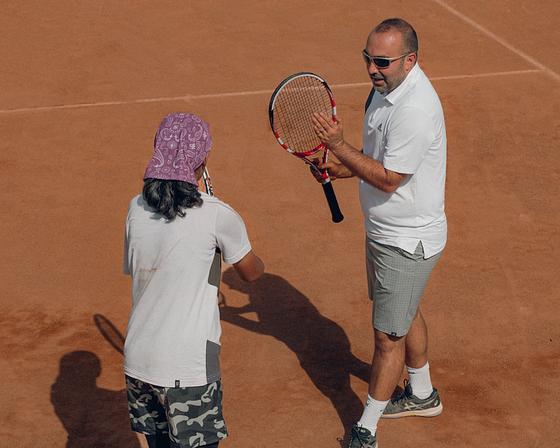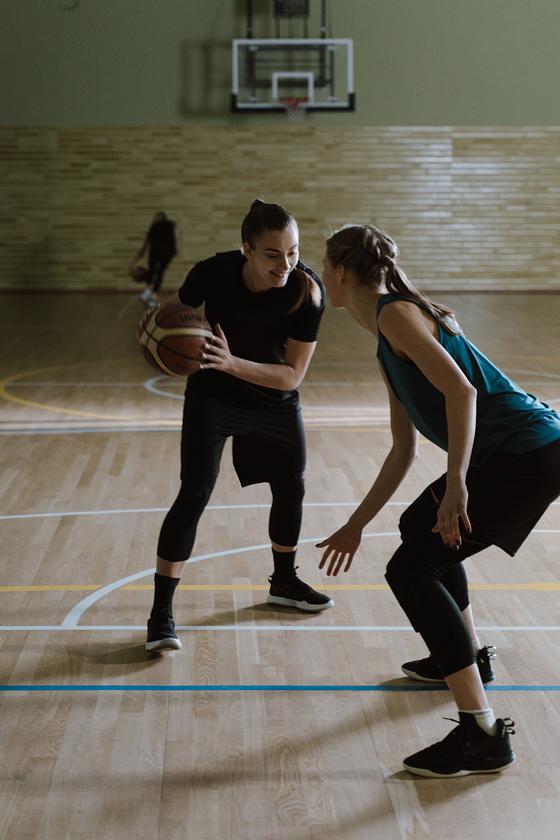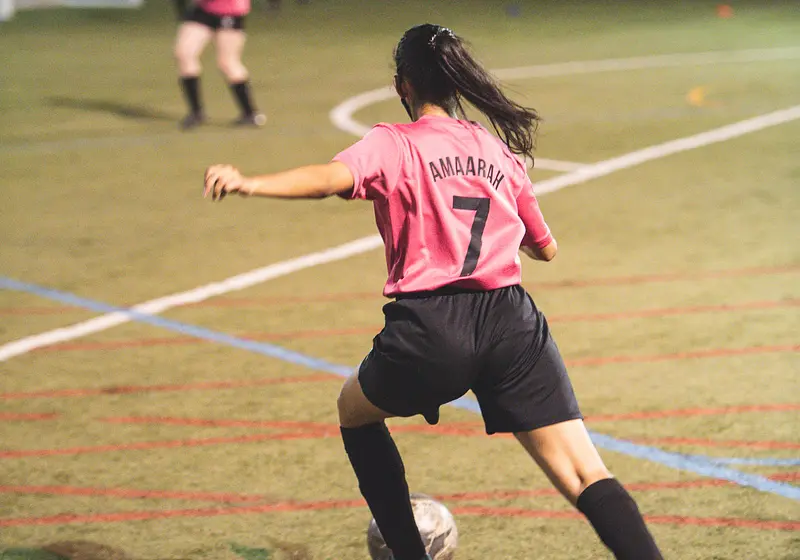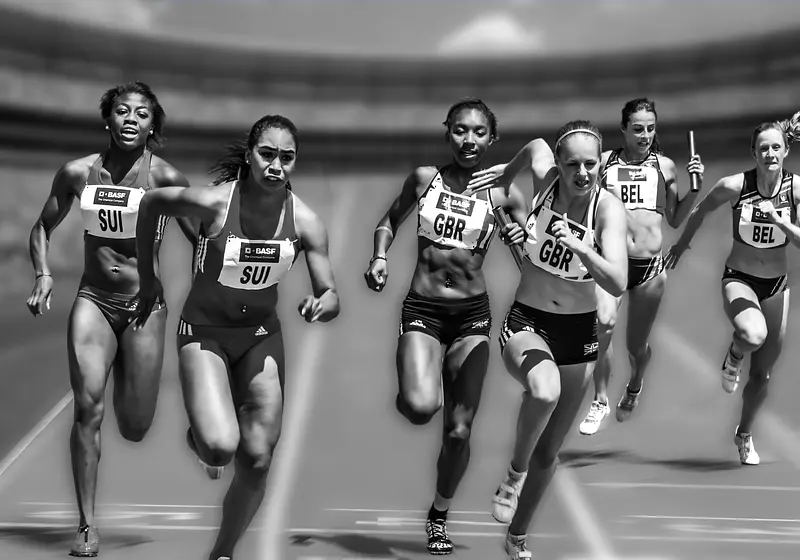Over the last few decades, gender equality in sports has progressed a great deal. For the first time, women and girls can join competitive sports teams and compete at the professional level. High school and college girls' sports are required by law to receive the same amount of funding as boys'.
A record number of female athletes are involved in sports at the recreational, high school, collegiate, and professional levels. But the journey isn't over. The next hurdle on the road to gender equality in sports is creating opportunities for women to become coaches and leaders.
Let us slide into your dms 🥰
Get notified of top trending articles like this one every week! (we won't spam you)The Problem
A week after my 13th birthday, I packed up my equipment and drove through the dusty summer heat to a tiny park just outside of Riverside, California, where I would be trying out for a prominent softball team, the Batbusters. This experience was nothing unique; I had played softball for eight years on fourteen different teams and had been to at least twenty-five different tryouts. This team seemed ordinary until I met the coaches: three former college softball players, women who knew the game inside out.
It took me a little while to figure out why this was so strange. That's when I realized: in all my years of softball, I could not remember ever encountering a female coach.
Ironically, Title IX, the law that gave girls the same rights to play sports as boys, can help explain this discouraging lack of female coaching. Before it was passed, 90% of women's college teams had a female coach, because women's sports were not considered “important” enough to be coached by a man. Title IX ended this by flooding women's sports with money, job openings, and recognition.
Suddenly, coaching women's college sports was a far more powerful job. Men became interested and they were hired.
Today, almost fifty years after Title IX, men still dominate sports. Only 40% of women's college sports are coached by a woman. Only around 3% of men's sports have a female coach.
This unfortunate phenomenon holds true for younger athletes as well. A survey by the Sports and Fitness Industry Association found that only 27% out of the almost seven million adults that coach youth sports up to age 14 are women. A similar survey set in Minnesota found that just 21% of high school head coaches are women. The conclusion is clear: when it comes to leadership roles in sports, women are not given the same opportunities as men.

Take the Quiz: Which Squid Game Player Are You?
Ever wondered which player you’d be if you found yourself in the Squid Game universe? Take this quiz to find out which character matches your perso...
Why Does this Gender Gap Exist?
Thanks to Title IX, which was passed in 1972, an entire generation of women have grown up playing competitive sports. The number of female athletes and former athletes, if not as high as the number of male athletes, is significant. These women know sports, and know how to talk to others about the game. Then why are they not represented in the field of coaching?
My mom was one of those women. She played varsity basketball in high school and played competitive softball through college. When I, her oldest daughter, joined my first softball team at age five, she was eager to help out.
But she was never able to do so. Because when the coach — a man, of course — talked to the parents before practice, he ended his speech by saying, “If any dads want to help out during practice, please feel free to do so. And moms, we need a couple of you to volunteer to make bows for the girls.”
This experience was not unique: for the next few years, my mom's input was not welcomed, even when most members of the league knew that she and several other women had played softball at the collegiate level. It wasn't until I reached the 10u division that a coach finally asked my mom to work with the pitchers and catchers during practice (she had been a catcher in college). She had only been out there for a few minutes when one of the dads — who had never played baseball, let alone softball — marched out on the field and asked, “Who are you, and what are you doing coaching my daughter?” He said this to my mom only, ignoring the four or five other parents that were also helping to coach the girls. The difference: they were all men.
Needless to say, my mom's experience helping out at my softball practices did not last long. The sexist belief that only men can be coaches kept her, the other moms in my softball league, and presumably thousands of other qualified former female athletes from coaching.

Image Credit: Rezli from Unsplash
The Publicity Gap
By why, decades after women received the right to play sports at the same level as boys, does the prejudice against female coaches still exist? The simple fact that men's sports receive far more publicity than women's is a large part of this gender disparity. For example, imagine LeBron James and Michael Phelps are shopping in a grocery store.
There would be, of course, crowds of people surrounding them, begging for an autograph, because they are some of the most famous people in the world. Now picture Brianna Stewart, the top-ranked player in the WNBA, and Allison Schmidt, an eight-time Olympic medalist and the fastest female swimmer in the 200-meter freestyle. What are the chances that these top-notch female athletes will be met with the hoards of fans their male counterparts were?
Not much. Chances are, most people don't even know who these exceptional women are, let alone recognize their prowess enough to ask for an autograph.
These incredible female athletes do not get the same recognition as males. And when boys — and girls — grow up revering stellar male athletes, and never hearing of their female counterparts, of course they grow to believe that sports are the domain of men.

Image Credit: Cottonbro Studio from Pexels
The Number of Male Coaches
The most important factor in the bias towards female coaches is that the vast majority of coaches are currently men. Everyone who has played or watched sports has most likely encountered far more male coaches than female, leading many to — consciously or unconsciously — favor men as coaches.
The most prominent athletic directors have seen more men's sports games and encountered more male coaches, so they hire a man to be the head coach; this coach, having the same prejudices, hires a male assistant, who asks all the dads on the team to help out. And the domination of men continues.
The depressing reality is that such bias towards female coaches will continue to infect the next generation, unless we make significant changes to the system. Boys and girls now are growing up idolizing Usain Bolt and remaining ignorant of Florence Griffith Joyner, his female counterpart. Many young athletes, like me, can count on one hand the number of female coaches they've encountered.
How can girls have the confidence to lead a sports team, when they've never seen any female coaches themselves? How are boys supposed to know the abilities of female athletes and leaders, when they've never known any?
When I'm an adult and have a daughter old enough to play softball, I want to help at her practices. I want to be able to teach her and her peers how to catch. After spending nine years playing this sport, hundreds of hours at practices, entire summers crisscrossing the country for tournaments, the idea that I will be expected to sit on the sidelines and make bows, while a man who has never played teaches my daughter to swing a bat, is sickening.
Women are athletes. Women are coaches. It's time for the world to acknowledge it.

















